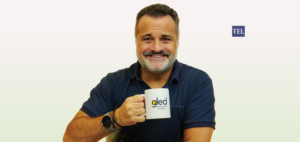The field of operations research stands at the intersection of analytical problem-solving and real-world applications, transforming how societies address logistical challenges, resource allocation, and system optimization. Rooted in mathematical modeling, probability, and strategic decision-making, this discipline plays a crucial role in refining processes across industries, from urban planning to telecommunications and public service. By integrating data-driven insights with practical execution, operations research continues to influence policy formulation, infrastructure efficiency, and organizational effectiveness, bridging the gap between theoretical frameworks and impactful solutions.
At the heart of this specialized domain, Richard Larson, Professor at the Massachusetts Institute of Technology (MIT), has dedicated his career to refining and expanding the field’s practical applications. His analytical acumen, coupled with an unwavering commitment to problem-solving, has led to groundbreaking contributions in urban operations research, police patrol analysis, and public systems evaluation.
His leadership is defined by an ability to merge academic depth with real-world implementation, ensuring that research transcends theoretical confines to create tangible solutions. Whether guiding students through innovative research methodologies or developing pioneering initiatives like MIT BLOSSOMS, he continuously drives forward-thinking approaches that influence both academia and industry. As he continues to shape future scholars and professionals, his legacy stands as a testament to the power of analytical thinking in addressing critical societal challenges.
Journey in Operations Research and its Impact on Public Sector Work
Operations Research, often referred to as “research on operations,” was a field that resonated deeply with Prof. Richard. He has always had a passion for physics, which he considers his favorite science, though he was not as inclined towards biology. To him, Operations Research is the physics of the world in which individuals live—from waiting in line at a traffic light or a grocery store, managing household inventories, to efficiently driving from one point to another using algorithms like the Dijkstra algorithm.
Prof. Richard’s introduction to this field came when his MIT faculty advisor, Professor Alvin W. Drake, introduced him to Operations Research, sparking an immediate passion for the discipline. At the time of his graduate studies, Prof. Richard was indirectly impacted by a crime, which prompted him to focus on studying policing and police patrols. With the support of Prof. Drake and Prof. Philip M. Morse, then head of MIT’s Operations Research Center, he developed a close working relationship with the Boston Police Department. Prof. Richard spent over 200 hours riding along in patrol cars, gaining insights into their operations. This experience led him to select policing as the subject for his doctoral thesis under the guidance of Prof. Drake. His early focus on policing also led him to become the youngest member of the Science and Technology Task Force of the President’s Crime Commission.
His completed doctoral thesis was later published as the book Urban Police Patrol Analysis by MIT Press. This book earned the prestigious Lanchester Prize for the ‘Best Publication in Operations Research’ in 1972. The recognition provided strong encouragement for Larson to continue his work in operations research, particularly within the public sector.
Blending Academic Research and Practical Applications
As a professor at MIT and a leader in his field, Prof. Richard emphasizes the integration of academic research with practical applications to address real-world challenges. According to Prof. Richard, there is no conflict between academic research and its applications, as both are essential in operations research. The two elements must work together in an integrated manner to make operations research useful and relevant.
At MIT, Prof. Richard founded an off-campus consulting firm, initially a non-profit called Public Systems Evaluation, Inc., which later evolved into the for-profit ENFORTH Corporation. He dedicated Fridays to working at the firm, and many of his students took summer positions there, often working on-site in New York City and other locations. This initiative did not compete with or conflict with MIT’s priorities; rather, it provided essential hands-on experience that complemented the academic learning and implementation process. The students who participated in these projects often used their work with the firm as the basis for their master’s thesis.
Fulfilling Leadership in Educational and Research Initiatives
Prof. Richard believes that one of the most rewarding aspects of his work has been his involvement in the creation of the MIT BLOSSOMS Initiative in 2008. BLOSSOMS stands as one of the earliest open-source educational repositories on the internet, providing freely available lessons. These lessons continue to be widely accessed, with a global audience engaging with them daily via platforms like YouTube. Prof. Richard expresses his gratitude to the BLOSSOMS team for their dedication to the initiative’s success.
In addition to his role in MIT BLOSSOMS, Prof. Richard served as co-director of the MIT Operations Research Center (ORC), a vital entity at MIT that focuses on model development and its application across various domains. Despite not being part of a traditional academic department, the ORC’s interdisciplinary approach and enduring success highlight its essential role in MIT’s research and academic endeavors. He considers it a privilege to have contributed to the ORC’s growth and continued achievements.
Bridging the Gap Between Theoretical Research and Practical Implementation
Prof. Richard has consistently seen no conflict between theoretical research and its practical application in the field of Operations Research. He believes that operations research originated from the need to address real-world challenges, and its evolution has been closely tied to practical demands.
In his view, many of the core theories in operations research emerged from the necessity of solving complex problems. One of the earliest examples can be traced back to 1919, when Danish telephone engineer A.K. Erlang introduced the queueing theory to address the growing complexity of telecommunications systems. This theory was specifically designed to optimize service processes and resources in the face of increasing demand, thus directly addressing a practical issue in the field of telecommunications.
Furthermore, Prof. Richard highlights the pivotal role of World War II in shaping operations research. The war spurred the development of Search Theory, which was designed to enhance military strategies for locating enemy submarines. The need for practical solutions to the challenges of wartime logistics and strategy was a driving force behind the creation of this theory.
Throughout his career, Prof. Richard has witnessed the continuous alignment between theoretical advancements and their implementation in real-world applications, illustrating that the essence of Operations Research lies in its origin as a tool to solve practical problems.
Staying Informed About Advancements in Operations Research
Prof. Richard observed that operations research has expanded extensively, encompassing a vast array of specialized domains, making it increasingly challenging for any individual to remain fully updated on every development. He acknowledges the breadth of the field and highlights that, even before his retirement, his focus remained on specific areas within his research domain rather than attempting to cover the entire spectrum of advancements.
His primary concentration has always been on modeling, particularly probabilistic models, rather than optimization algorithms. The process of conceptualizing and refining models has been a continuous source of intellectual engagement for him. Even in retirement, his passion for modeling persists, reflecting a lifelong dedication to analytical problem-solving. This deep-rooted interest in the foundational aspects of operations research underscores the enduring relevance of mathematical and probabilistic approaches in addressing complex challenges.
Excellence in Operations Research and Engineering
Receiving the Lanchester Prize for the first book, Urban Police Patrol Analysis (1972), remains the most notable achievement for Prof. Richard. This prestigious award recognizes the best publication in Operations Research worldwide in a given year, as selected by ORSA (Operations Research Society of America) and now INFORMS (Institute for Operations Research and the Management Sciences). Winning this award at an early stage in the profession provided validation that the chosen research direction was valuable and held the potential to establish a strong academic foundation.
Adding to this, Prof. Richard shares, “Reflecting on the entire career, the invitation to become a member of the National Academy of Engineering (NAE) stands as the highest professional distinction for me.” He believes that this recognition represents a profound honor in the field of engineering.
Shaping the Future of Operations Research, Education, and Public Service
Prof. Richard aspires for his contributions to operations research, education, and public service to demonstrate the seamless integration of theory and application, highlighting their mutual dependence. His widely recognized textbook, Urban Operations Research (Prentice Hall, 1981), co-authored with MIT Prof. Amedeo Odoni, has received 1,369 citations and has been translated into multiple languages. This work continues to serve as a primary reference in operations research courses, even in contexts beyond urban studies, and is now being utilized in some high schools.
He hopes that future generations will adopt a comprehensive, multidisciplinary approach to problem-solving. His methodology aligns with that of an applied physicist—thoroughly analyzing observable phenomena, developing mathematical models, rigorously testing their accuracy, and refining them through an iterative process. He emphasizes the necessity of direct engagement with real-world conditions, asserting that mathematical models formulated in isolation must undergo rigorous validation to ensure their practical applicability.
Guiding Future Leaders and Researchers in Operations Research
Prof. Richard emphasizes the necessity of firsthand experience in conducting effective operations research. He advises aspiring leaders and researchers to adopt a hands-on approach, ensuring a comprehensive understanding of real-world operations before developing theoretical models.
From the very first day of analysis, it is crucial to visit the actual site of the operation under study. Spending an entire day observing processes, engaging in discussions with individuals responsible for various functions, and immersing oneself in the environment provides invaluable insights. This direct exposure helps challenge initial assumptions, many of which may require reconsideration or refinement. Without this foundational knowledge, operations research risks being disconnected from practical realities, reducing its effectiveness in addressing real-world challenges.
Throughout his career, both as an educator and as the leader of the operations research consulting firm ENFORTH Corp., Prof. Richard instilled this principle in his students and team members. He consistently reinforced the idea that theoretical models must be grounded in actual operational conditions to yield meaningful and applicable results. By prioritizing direct engagement and firsthand observation, future researchers and industry professionals can develop solutions that are both analytically sound and practically viable.
Advancing Model-Based Thinking for Smarter Decision-Making
Prof. Richard has dedicated his career to research, teaching, and mentoring students, finding immense fulfillment in these endeavors. As he transitions into retirement, his primary focus is on expanding the reach of model-based thinking beyond academic circles and introducing its value to a broader audience.
A major step in this initiative is his 2023 publication, “MODEL THINKING For Everyday Life: How to Make Smarter Decisions,” published by INFORMS. This book serves as a comprehensive guide, equipping individuals with structured analytical methods to enhance decision-making in various aspects of life. In addition to his written work, he has actively engaged with the media, including television, radio, and print, to articulate the significance of this approach and advocate for its widespread adoption.
His efforts have also received notable recognition. Through Marquis Who’s Who, his work was recently highlighted on a prominent display in Times Square, New York. This platform provided a remarkable opportunity to showcase the importance of model-based thinking on a global scale, further reinforcing his commitment to sharing knowledge that can contribute to more informed and effective decision-making.


